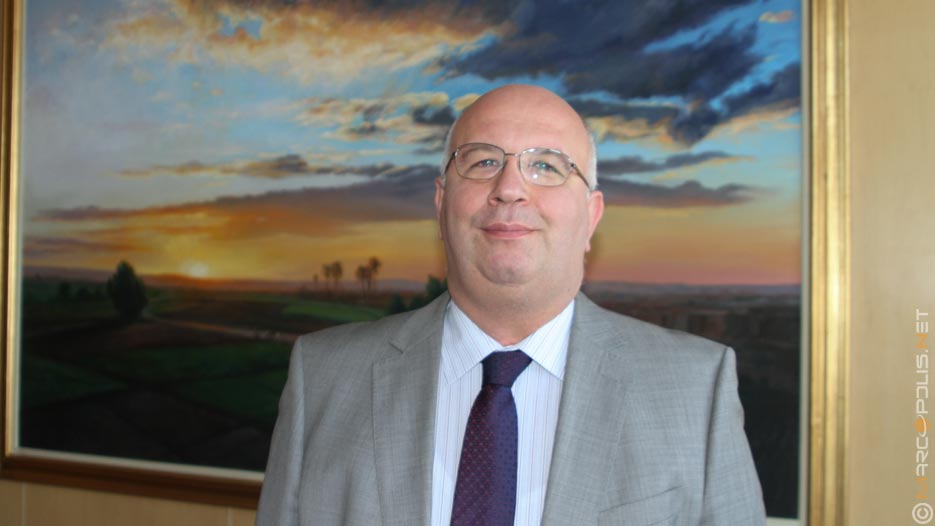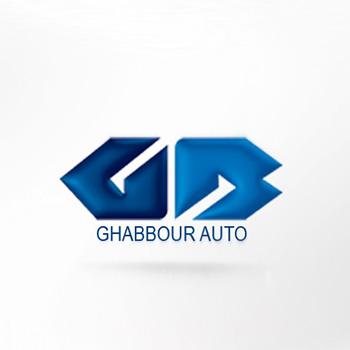Leading automotive company in MENA: Ghabbour Auto
“In spite of all the challenges posed by the Arab Spring period, we have maintained our growth and today we are a leading player in the MENA automotive region. Our headquarters are based in Egypt but we also operate in Iraq, Libya and Algeria,” says Osman Sever, Chief Business Development Officer of Ghabbour Auto.
Interview with Osman Sever, Chief Business Development Officer of Ghabbour Auto

Since the Arab Spring in 2011, people have been attentive to the political turmoil going on in Egypt; however, the business side has been partially neglected. Could you give us your overview of the economic climate in post Arab Spring Egypt? How does the current environment affect the economy in general?
Since the revolution in January 2011, the conditions in Egypt have been rather challenging for the country itself and for the companies doing business here. Essentially, the issue of stability is affecting the economy in general, especially when it comes to making important decisions such as purchasing passenger vehicles or renewing a fleet of commercial vehicles. These kind of big-ticket decisions of customers have become quite difficult to make. Overall, the conditions in Egypt have been rather challenging for us. In fact, 2013 was one of the worst years in terms of business that we have ever experienced. However management’s outlook for 2014 is reasonably optimistic.
What is your overview of the automotive and transport sector, both in terms of the passenger cars and commercial vehicles markets?
As this is a country with plenty of potential, after every crisis the country tries to pick itself up again. We hope that with the presidential elections now behind us, stability will prevail in Egypt and therefore, we expect to see more confidence and an improvement in the market. If you look at the first few months of this year according to the statistics, the market has been picking up. I hope that with more stability, the market will recover and we will return to more positive conditions.
In which areas do you see more demand?
 We have started to see the recovery happen in both passenger cars and commercial vehicles.
We have started to see the recovery happen in both passenger cars and commercial vehicles.
Can you tell us the story of Ghabbour Auto? Which brands do you represent and what is your current position in the market?
Ghabbour Auto goes back to the 1940s when two brothers Mr Sadek and Mr Kamal Ghabbour founded one of the very few private companies in Egypt.
Thirty years later, Dr Raouf Ghabbour, our chairman and CEO, decided to focus on the automotive business in general. He transformed the company into the automotive giant that it is today. In 2008, Ghabbour Auto became a public company listed on the Egyptian stock exchange.
In spite of all the challenges posed by the Arab Spring period, we have maintained our growth and today we are a leading player in the MENA automotive region. The Group employs over 6,000 people. Our headquarters are based in Egypt but we also operate in Iraq, Libya and Algeria. Egypt is obviously our home market and so it has been our focus, but we have now started to grow into new markets.
When it comes to partnerships with automotive companies worldwide, we represent more than 20 brands in the market. Among our internationally leading brand portfolio, we represent Hyundai in the passenger cars division. We represent Hyundai passenger cars both in Egypt and in Iraq. We also represent Mazda passenger cars, Volvo trucks, Volvo bus, Volvo construction equipment, Yokohama tyres, Lassa tyres from Turkey and some other Chinese manufacturers such as Geely in passenger cars as well as Bajaj from India in the two and three wheeler products. We represent all of these brands in Egypt and a selection of them in the other countries in which we operate.
What makes you stand out from your competition?
We have been in the Egyptian market for almost 40 years therefore we have excellent local knowledge. We are also committed to the country and our customers. This is reflected in our facilities; we have the largest network and investment in sales and after-sales facilities. It is a sign of our dedication to what we do and the level of care that we deliver to our customers. We are a very financially powerful company and we use this to serve our customers. The spare parts availability in after-sales is very high, probably the highest in the market.
In the passenger market, the combined market share of the Group was over 30% in 2013, which is a very sizeable portion of the market.
All of these factors are reflected in our market share; in the passenger market, the combined market share of the Group was over 30% in 2013, which is a very sizeable portion of the market. In the commercial vehicle market, it depends what segment of the market you look at but our overall market share is somewhere between 18 to 20%. This is combining the trucks, buses and construction equipment segments.
You mentioned that you are present in Iraq and Libya. Are you looking to expand further into the region?
Yes, diversification is part of our strategy. We are looking for opportunities particularly in sub-Saharan Africa because we feel that Africa is the ultimate market to go into. Therefore, the company is looking at opportunities in some of the high growth potential African markets.
Stability is one of the key challenges. What other challenges do you face on a daily basis?
Since the revolution in 2011, foreign currency has been a major problem because tourism has dropped drastically and following the Arab Spring, most of the Egyptian expats operating in the Gulf and especially in Libya, have come home. Consequently, the Egyptian foreign reserves have fallen considerably. One of our major problems is cash flow management. Getting approval from the authorities to transfer money and even finding the money in hard currency is a major problem. We run manufacturing operations where we need to maintain a sustainable operation and so this is a big challenge for most of the companies.
Secondly, having the right staff is another daily challenge. This is why Ghabbour Auto decided to contribute on this level not only for our company but also for society. A couple of years ago, we set up the Ghabbour Academy where we began to provide to our entire workforce soft skills, sales and technical training. We need employees who have a sense of responsibility, who take the initiative and who demonstrate a certain level of maturity and ownership.
Do you have any other initiatives in terms of corporate social responsibility?
Definitely. Ghabbour Auto is a leading player in terms of corporate social responsibility. We have four programs running at the moment. We support an Egyptian women’s association amongst other programs. We have close cooperation with some of the educational institutions in Egypt. As part of our Ghabbour Academy program, we train young technical high school students for one year. They receive a certificate at the end of the year and if they want to join Ghabbour Auto in the areas that are available, then they are more than welcome to do so.
What is your personal vision for the company and for Egypt itself?
Today, Ghabbour Auto has become the leading automotive player in the MENA region. Our vision for the next five years is to maintain our leadership in the Middle East and expand in the African continent. We are trying to prepare the groundwork to be able to deliver this objective in the long term.
With the presidential elections now behind us and with the parliamentary elections soon to take place, I think Egypt will go through a period of fundamental transformation, which will have a positive effect on the entire country and anyone operating in Egypt will benefit. We consider Egypt to be a very high potential market, given the population, conditions, history and heritage. We strongly believe Egypt will make it through.
FAIR USE POLICY
This material (including media content) may not be published, broadcasted, rewritten, or redistributed. However, linking directly to the page (including the source, i.e. Marcopolis.net) is permitted and encouraged.